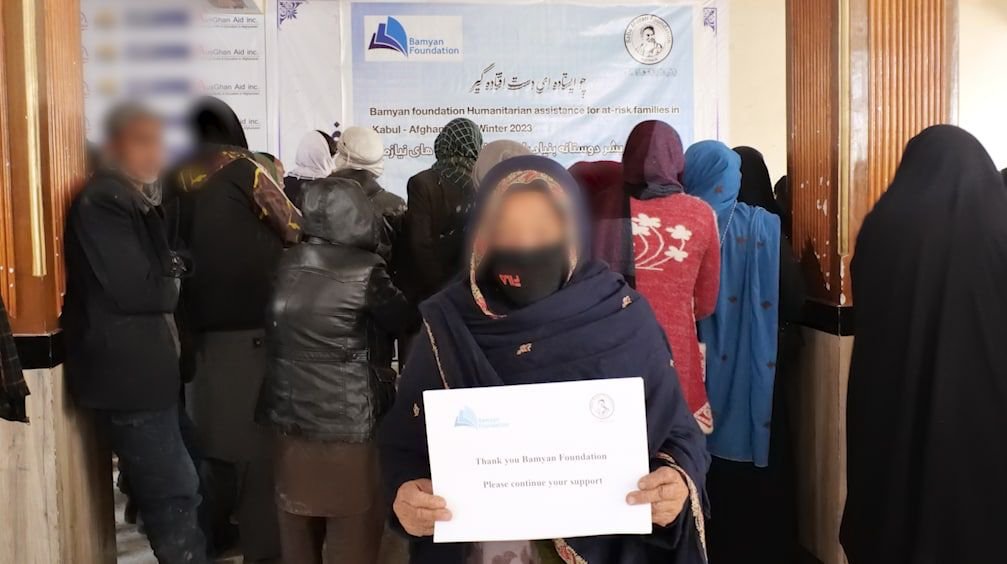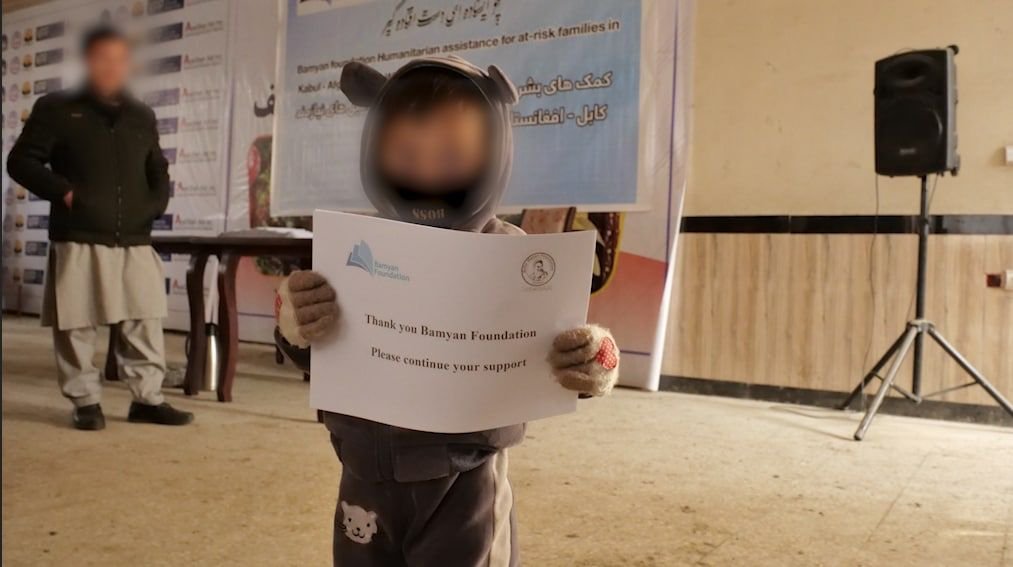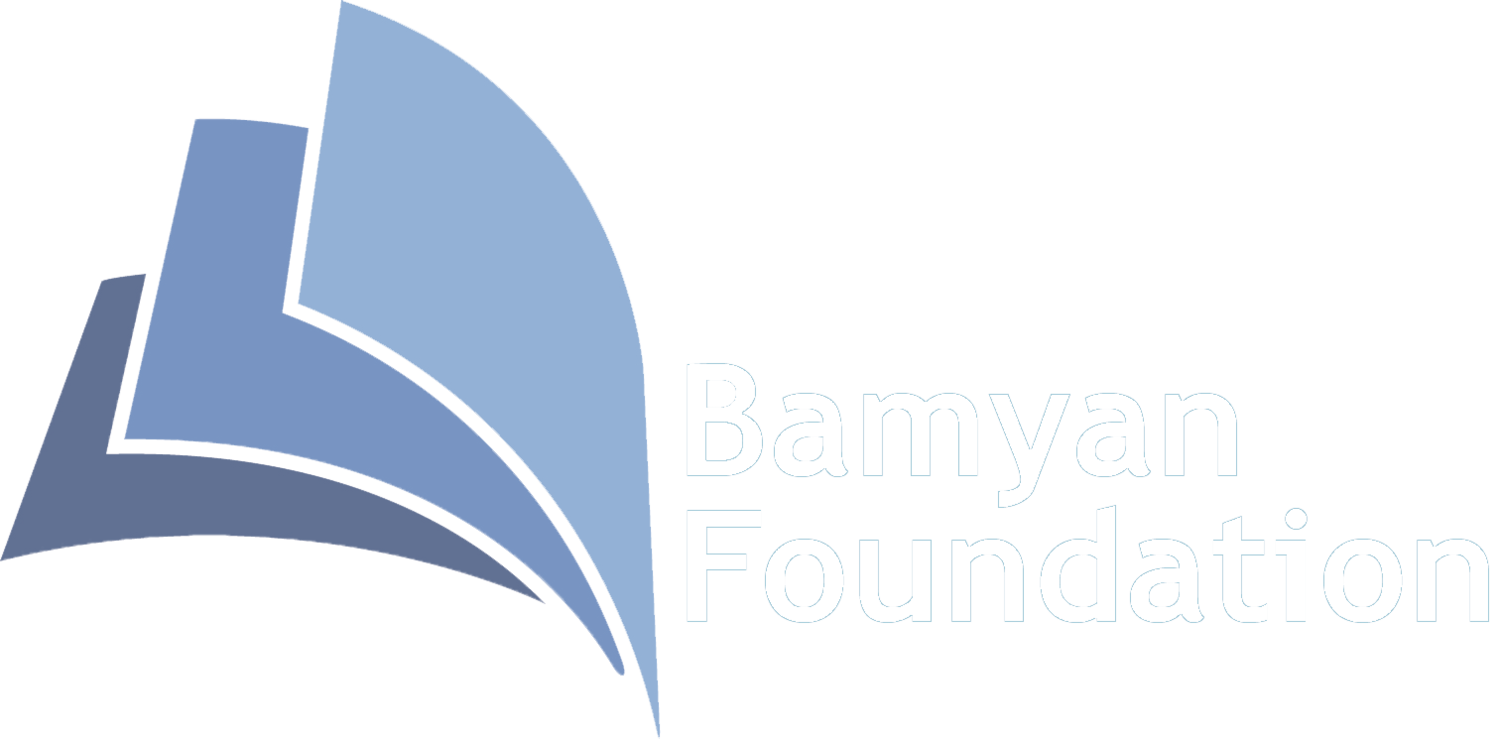Aid Distribution (January 2023 - April 2023):
Kabul (January 2023):
The economic situation of Hazaras in Afghanistan have further deteriorated since the collapse of the Afghan government in August 2021, and it gets aggravated during the harsh winter each year. Lack of basic sustenance and heating material creates serious challenges that requires urgent attention – however, no one seems to hear about the agony of the Hazaras as the local and international aid agencies do not pay attention and carry out a proper survey of the impoverished Hazara areas in Kabul and in the provinces. With the ban on women employment in aid agencies, several aid agencies that helped vulnerable families halted their operation. As a result, many families, particularly children, were left with severe food shortage and at the mercy of cold weather.
In view of the urgent need, Bamyan Foundation held a fundraising campaign to support those most in need, and the Foundation’s team on the ground simultaneously began their survey in the impoverished Hazara areas of Kabul. The team identified 126 at-risk families in urgent need of assistance. Bamyan Foundation allocated an amount of 12,000 USD for the at-risk families.
On January 23, 2023, our team distributed the aid that included cash assistance in the amount of 8,000 AFN per family for 126 families. This community-led initiative was a joint collaboration between Bamyan Foundation and Baba Mazari Foundation, the two main Hazara diaspora grassroots organizations. Despite the ongoing systematic attacks on the Hazaras and a host of challenges, our teams discreetly gathered the families and successfully distributed the aid. The beneficiaries included those who had lost loved ones and bread winners in the recent violent attacks, widows, the ailing and those in urgent need.
Despite the humanitarian crisis and deteriorating human rights conditions in Afghanistan, the international community and the major international aid organizations have a diminishing attention towards the people of Afghanistan, particularly the marginalized communities stigmatized due to race and religion and therefore sidelined from the humanitarian aid due to racial and sectarian reasons. There were many elderly beneficiaries who shed tears of joy after receiving the aid just so to have secured few extra meals and heat for few weeks for their families.









Injured Girls of Kaaj Education Center (February 2023):
57 students, mostly girls, lost their lives in a devastating genocidal attack on Kaaj Education Center in the impoverished Hazara area of west of Kabul on September 30, 2022. Nearly 115 were injured, and many of the wounded require long term medical treatment. There was a community-led initiative that undertook the responsibility of treatment of the injured in a neighboring country. Several organizations and individuals contributed towards this initiative. Bamyan Foundation provided 6,000 USD to cover the medical expenses of nine injured Kaaj girls. They are on their journey of recovery, but the terrible trauma that they have endured may take a while to heal…
Aid Distribution in Balkhab (January - February 2023):
During a bloody battle between Taliban and one of their former commanders in the Hazara district of Balkhab in the summer of 2022, hundreds of families were forced to flee to the mountains and neighboring provinces. The Taliban’s devastating campaign had dire consequences for the locals as many houses were burnt and looted, many lost their lives and many more permanently disabled. The internally displaced people (IDP), mostly women and children, faced severe food shortages. The main challenge was Taliban’s sensitivity to this issue and blocking aid agencies to provide aid for the vulnerable IDPs. The aid agencies initially ignored the humanitarian crisis and when they couldn’t ignore anymore, the Taliban hindered their operation. This resulted to increased mortality among women, elderly and children.
Bamyan Foundation, through its humanitarian aid efforts, tried to find a way to get aid to some of the families. With the help of local community leaders, our team surveyed and located the most vulnerable families. This process took a while as the families were scattered in different mountains and localities. We had to be cautious as some of the previous aid distribution by other organizations were distributed to other groups and not the Balkhab IDPs. This campaign was full of risks due to threads from Taliban as well.
The total aid package amounted to 8,000 USD. Bamyan Foundation allocated an amount of $5,000 and Hazara-Americans and friends contributed another $3,000 through a Facebook fundraiser.
After a couple of months, the IDPs were forced to return to their homes. We updated our survey in October and November 2022, and identified 140 families, who were among the most in need. These families had lost everything, their homes and belongings. Our list included those who had lost loved ones and breadwinners, widows, orphans and households with young children and the elderly.
This wouldn’t have been possible without the support of our partner, Baba Mazari Foundation, and a local community leader, Mohammad Baqir Mellatyar. We are eternally grateful!






Aid to three families in central Afghanistan (April 2023):
The Bamyan Foundation team found out about three Hazara families in dire need of support. The head of these three families were killed in a Taliban ambush, and the families were left without their breadwinner and support. Our team in the US coordinated with our contact on the ground to find the families who lived in a remote and impoverished village in an inaccessible part of the central highlands. We provided an amount of 1,000 USD ($300 per families and $100 for our contact on the ground).
Aid Distribution by major aid organizations in Hazara areas:
According to our community leaders and village elders on the ground, the Hazaras continue to get sidelined from the lifesaving humanitarian aid by the major aid organizations in Afghanistan. Due to their influence in the aid distribution process and in local Afghan aid agencies, the Taliban continue to use the aid as carrot and stick to their supporters and opponents. Even when the modest aid arrives in Hazara areas that are much smaller in quantity and inferior in quality – they are either collected by Taliban supporters or Pashtuns, who arrive a day or two prior to the distribution site, or distributed in a significantly smaller amount/quantity to Hazaras. In some localities, they have distributed much smaller amounts of aid per household, compared to aid distributed in Pashtun areas. For example, they would distribute aid to 10 Hazara households in a village of 100 households and mark the project complete, and this strategy applies to the broader Hazara areas as well in Afghanistan. In some localities, rotten food packages were distributed to vulnerable families. Furthermore, Hazaras are subjected to dehumanizing racist taunts during the aid distribution.
In light of the neglect and shortcomings of the major aid organizations in Hazara areas, Bamyan Foundation continues to fundraise, within our limited reach, to provide support for our voiceless and defenseless community in Afghanistan. We have cultivated relationships with grassroots organizations and community leaders on the ground that allow us to reach inaccessible communities left out from the aid distribution process, and partnerships in the U.S. that allows us to fundraise, albeit on a small scale for now, to reach a wider support base in the long term. We are thankful to GlobalGiving, particularly the Afghanistan Emeregency Fund, Benevity, Baba Mazari Foundation and local leaders on the ground to help us raise the funds and accomplish the challenging task of identifying the at-risk beneficiaries and safely distributing the aid in Afghanistan.


